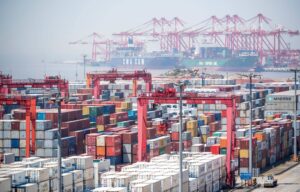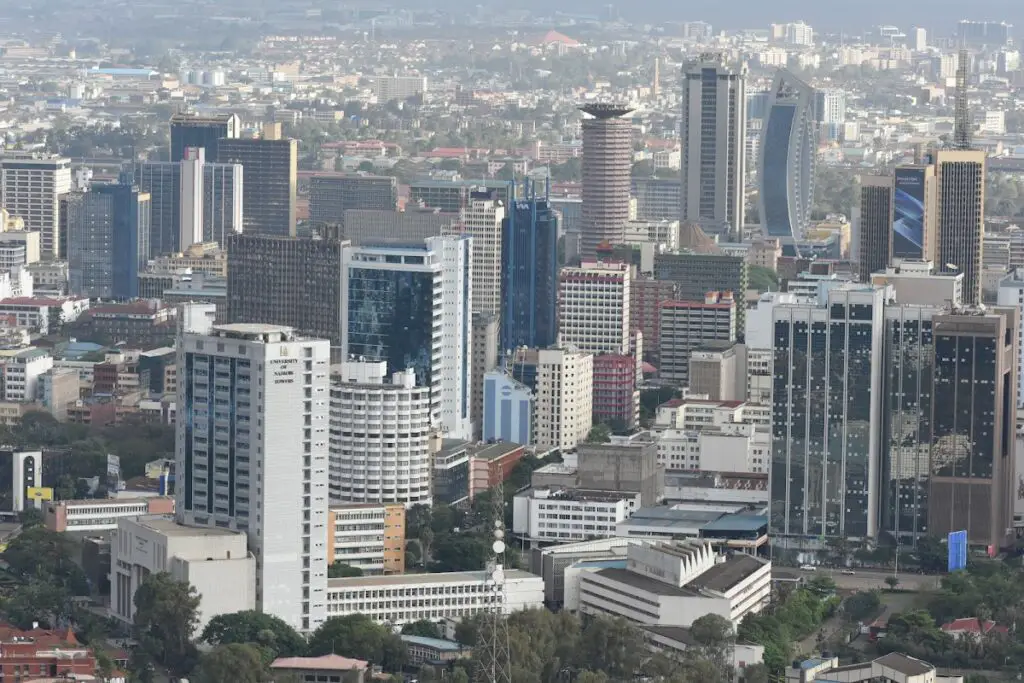- Allianz Risk Barometer 2023: changes in legislation and cyber security top threats in Kenya as climate and market development risks rise.
- Cyber incidents, such as IT outages, ransomware attacks or data breaches, ranks as the most important risk in Kenya. It is the risk that small companies ($250mn annual revenue) are most worried about.
- The frequency of ransomware attacks remains elevated in 2023, while the average cost of a data breach is at an all-time high at $4.35mn and expected to surpass $5mn in 2023.
Change in legislation, cyber incidents and climate change are the top three threats to Kenyan Businesses according to Allainz Risk Barometer 2023.
According to the data Kenyan business ranked the three as the major risks in 2023, with market developments coming in fourth place.
“In Kenya, the top three risks are Changes in legislation and regulation (#1 from #4). Cyber incidents is second from #5. Climate change, a new entrant, and Market developments (from #6) are joined third with 27 percent of responses,” the report indicates.
Cyber incidents, such as IT outages, ransomware attacks or data breaches, ranks as the most important risk in Kenya. It is the risk that small companies ($250mn annual revenue) are most worried about. .
“For many companies the threat in cyberspace is still higher than ever and cyber insurance claims remain at a high level. Large companies are now used to being targeted and able to repel most attacks. Increasingly, we see more small- and mid-size businesses impacted who often tend to underestimate their exposure. They all need to continuously invest in strengthening their cyber controls,” says Shanil Williams, Allianz Global Corporate Specialty (AGCS) Board Member and Chief Underwriting Officer Corporate, responsible for cyber underwriting.
According to the Allianz Cyber Center of Competence, the frequency of ransomware attacks remains elevated in 2023, while the average cost of a data breach is at an all-time high at $4.35mn and expected to surpass $5mn in 2023.
The Allianz Risk Barometer is an annual business risk ranking compiled by Allianz Group’s corporate insurer Allianz Global Corporate & Specialty (AGCS), together with other Allianz entities, which incorporates the view of 2,712 risk management experts in 94 countries and territories including CEOs, risk managers, brokers and insurance experts. Respondents were questioned during October and November 2022.
The survey focused on large- and small- to mid- size companies. Respondents were asked to select the industry about which they were particularly knowledgeable and to name up to three risks they believed to be most important.
The conflict in Ukraine and wider geopolitical tensions are heightening the risk of a large-scale cyber-attack by state-sponsored actors. In addition, there is also a growing shortage of cyber security professionals, which brings challenges when it comes to improving security.
For businesses in many countries, 2023 is likely to be another year of heightened risks for Business interruption (BI) because many business models are vulnerable to sudden shocks and change, which in turn impact profits and revenues. Ranking #2 globally and in Africa and the Middle East, BI is the number one risk in countries such as Cameroon, Brazil, Germany, Mexico, Netherlands, Singapore, South Korea, Sweden and the US. It also ranks in the top three risks in Ghana, Morocco and South Africa and sixth in Kenya.
“The scope of disruptive sources is wide. Cyber is the cause of BI companies fear most (45% of responses); the second most important cause is the energy crisis (35%), followed by natural catastrophes (31%). The skyrocketing cost of energy has forced some energy-intensive industries to use energy more efficiently, move production to alternative locations or even consider temporary shutdowns. The resulting shortages threaten to cause supply disruption across a number of critical industries including food, agriculture, chemicals, pharmaceuticals, construction and manufacturing,” the report reads.
Macroeconomic malaise in Africa
Macroeconomic developments such as inflation or economic and financial market volatility rank as the third top risk for companies globally in 2023 (25%), up from #10 in 2022 – the first time this risk has appeared in the top three for a decade. It maintains its seventh spot in Kenya and ranks as a top three risk in Burundi, Ghana, Ivory Coast, Madagascar, Mauritius, Morocco, Namibia, Nigeria and Tanzania.
“2023 will be a challenging year; in purely economic terms, it is likely to be a year to forget for many households and companies. Nevertheless, there is no reason to despair,” says Ludovic Subran, Chief Economist at Allianz. “For one thing, the turnaround in interest rates is helping, not least for millions of savers. The medium-term outlook is also much brighter, despite – or rather because of – the energy crisis. The consequences, beyond the expected recession in 2023, are already becoming clear: a forced transformation of the economy in the direction of decarbonization as well as increased risk awareness in all parts of society, strengthening social and economic resilience.”
Risk risers and fallers in Africa
The Energy crisis is the biggest risk riser in the Allianz Risk Barometer appearing for the first time at #4 (22%). It ranks in the top risk three in Burundi and came in as a new entrant in Kenya (#7), South Africa, Ghana and Nigeria. Some industries, such as chemicals, fertilizers, glass, and aluminum manufacturing, can be reliant on a single source of energy – Russian gas in the case of many European countries – and are therefore vulnerable to disruption to energy supply or price increases. If such base industries struggle, repercussions can be felt further down the value chain in other sectors.
According to Allianz Trade, the energy crisis will remain the largest profitability shock for European countries in particular. At current levels, energy prices would wipe out the profits of most non-financial corporates as pricing power is diminishing amid slowing demand.
Driven by 2022 being another year of turmoil with conflict and civil unrest dominating the news, Political risks and violence is a new entry at #10 (13%). Aside from war, companies are also concerned about increasing disruption from strikes, riots and civil commotion activity as the cost- of-living crisis bites in many countries.
In Africa and the Middle East, political risks and violence fell two places to sixth but it is still in the top three risks in Burundi, Madagascar, and Nigeria. The risk also fell out of the top 10 risks in Kenya from third in 2022.











